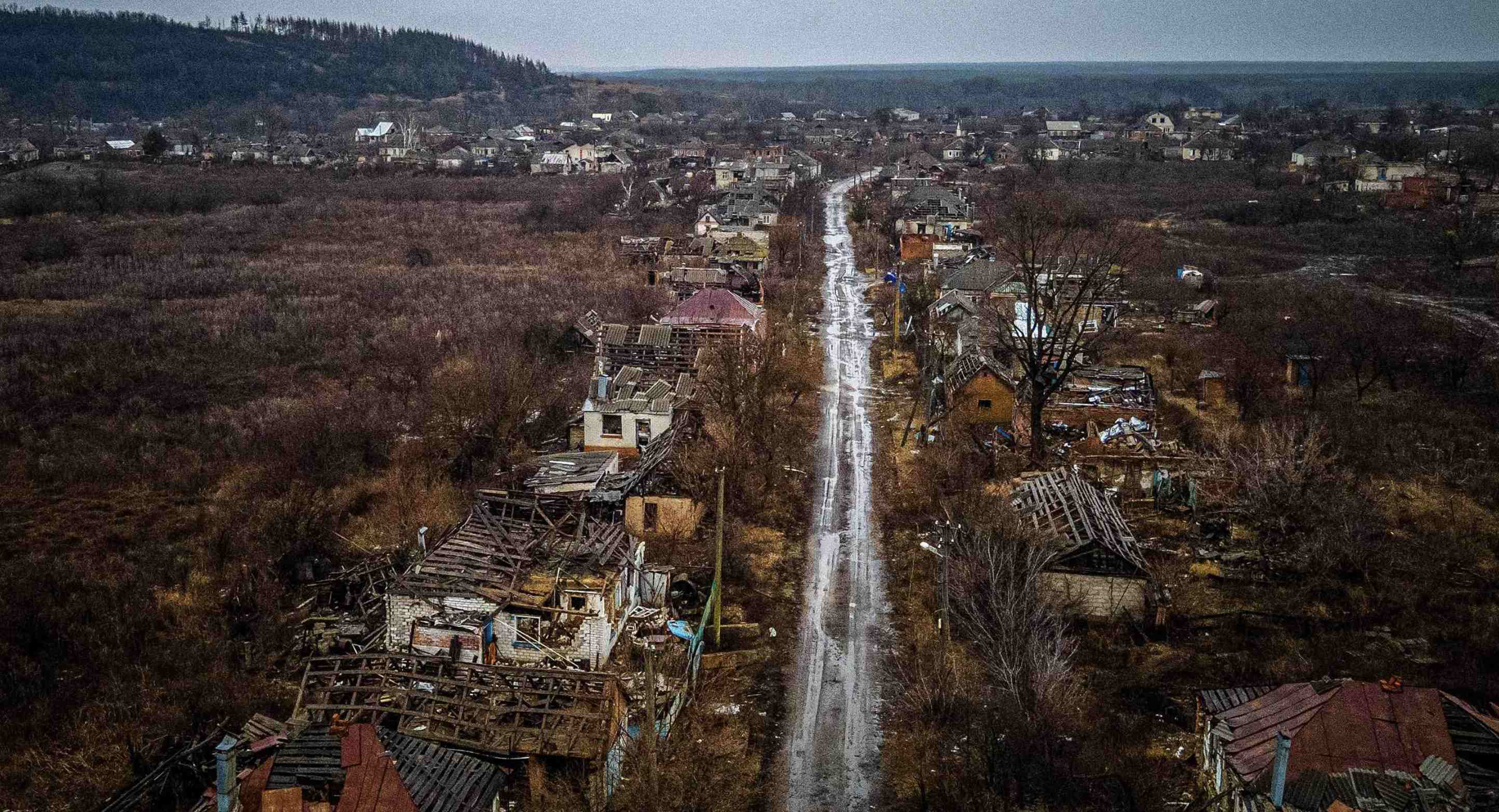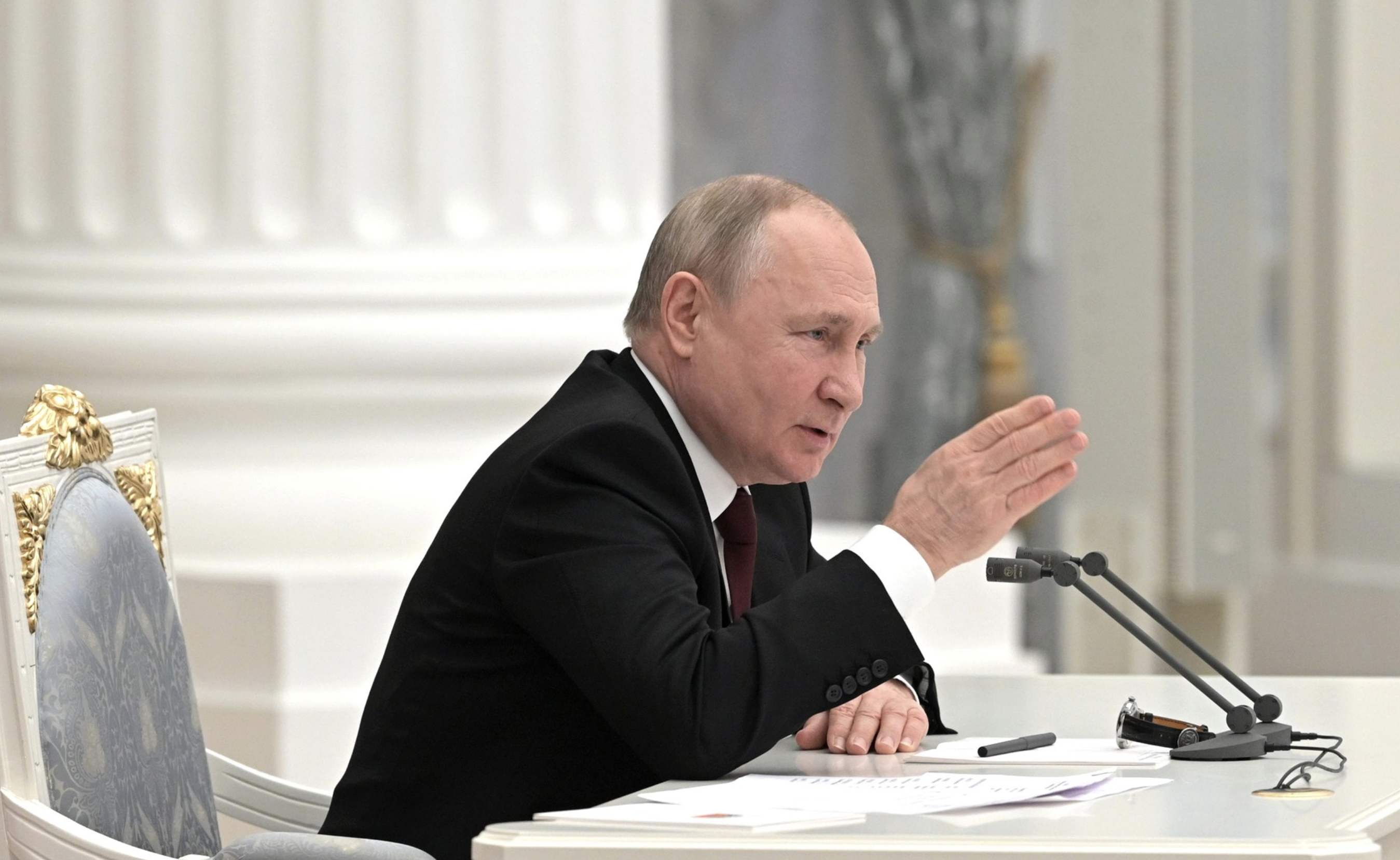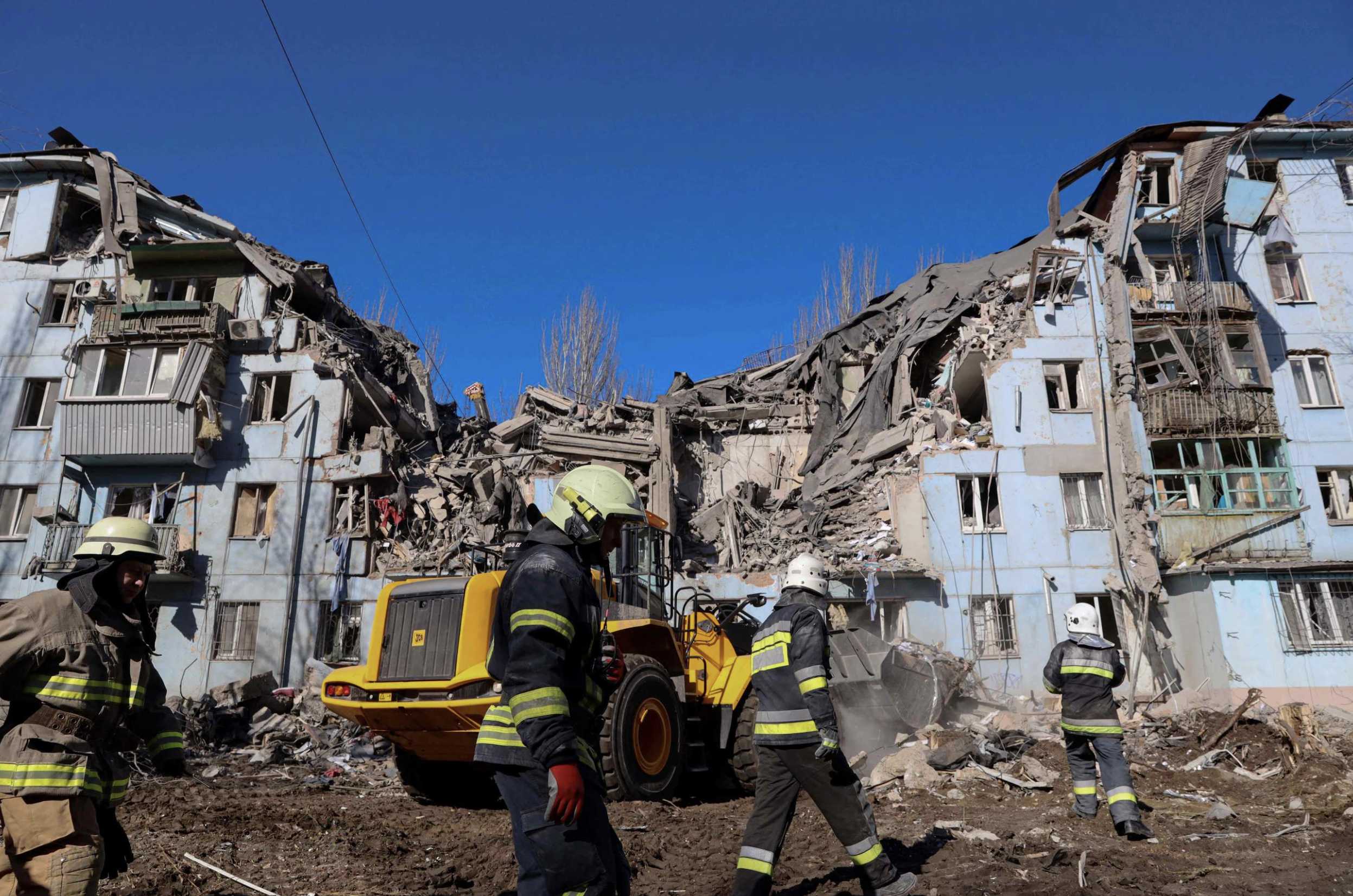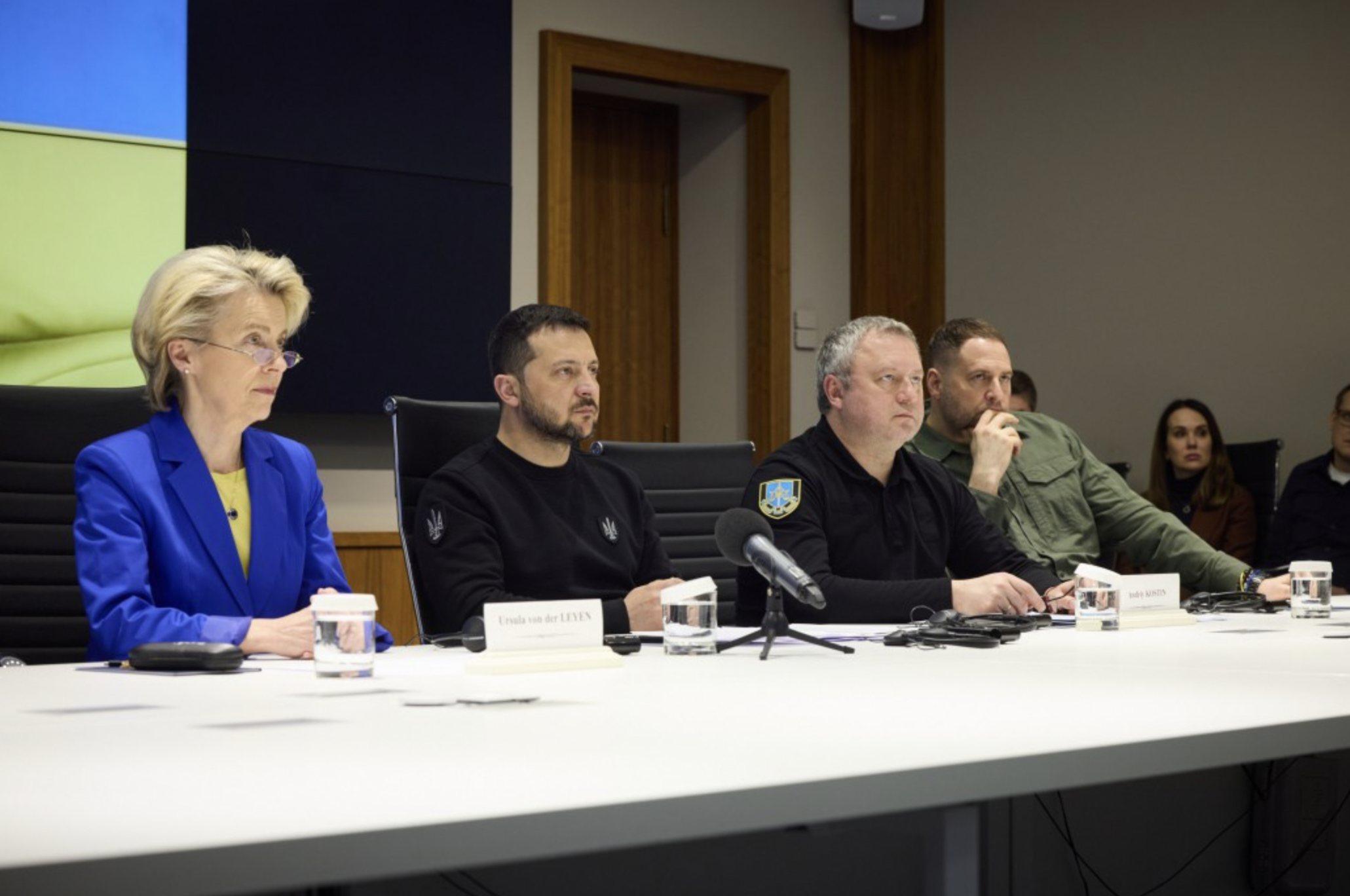Patryk Labuda has a Ph.D. in international law from the Graduate Institute of International and Development Studies in Geneva. He currently works on the ‘Memocracy’ project at the Polish Academy of Sciences, where his research focuses on shifts in the global legal order and relations between the 'Global South' and 'Global East', especially Eastern Europe and Africa, in the wake of the Russo-Ukraine war.
There is a lot of discussion now about how to make Russia accountable for the crimes it did. There are certain tensions in this field. The ICC issued an arrest warrant for Russian president Vladimir Putin. At the same time, we observe that the Ukrainian government wants to create a Special Tribunal for Aggression to hold Russia accountable. The United States and other Western countries propose the creation of a 'hybrid' tribunal instead of the Special Tribunal for Aggression. And the Global South is skeptical about all the options. We decided to discuss these questions with Patryk. The interview is released in two parts. In the first part, we discuss the global context and how justice for Ukraine can bring a fairer international law practice. In the second part, we go into detail of the different types of courts that are discussed now and what are the reasons for the disagreements between different parties.
We know that the ICC issued an arrest warrant for Russian president Vladimir Putin. At the same time, we observe that the Ukrainian government wants to create a Special Tribunal for Aggression to hold Russia accountable. The United States and other Western countries propose the creation of a 'hybrid' tribunal instead of the Special Tribunal for Aggression. How do all these three options relate to each other? What is the core idea of each proposal? (in the following questions, there will be an opportunity to elaborate on each of them)
Let me try to provide a birds-eye view of what is at stake in these discussions. Your question concerns individual criminal responsibility for the four core international crimes: genocide, war crimes, crimes against humanity, and aggression.
As a preliminary matter, readers should keep in mind that there are also separate proceedings underway to hold Russia responsible as a state. These are the proceedings before the International Court of Justice in The Hague, Netherlands, relating to Russia’s state responsibility under the 1948 Genocide Convention.
But we are talking about something slightly different here. It is the prospect of holding Russian officials, for instance, government officials or soldiers, accountable for a narrow category of the most serious crimes that entail each person’s individual criminal responsibility before domestic courts as well as before certain international tribunals with jurisdiction. Of course, there is considerable overlap in the actions that can give rise to state terms of the actions that can give rise to state responsibility or individual criminal responsibility. But it is important to keep these things separate legally. From a legal perspective, it is not the same thing to hold Russia – as opposed to Russians – accountable for serious crimes.

Aerial view of the road leading past buildings destroyed by shelling in the village of Kamianka, Kharkiv region, on February 26, 2023. Photo: Ihor Tkachev / AFP
So, coming back to your question, we are concerned only with the latter question: how do we hold Russians accountable in their individual capacity for certain serious crimes? And here again, there are two parallel accountability tracks we need to keep separate. First, there is the International Criminal Court (ICC), also based in The Hague, Netherlands, which has jurisdiction in Ukraine over war crimes, crimes against humanity, and genocide. However, while the ICC does have authority over the fourth crime – the crime of aggression – under its founding treaty, the 1998 Rome Statute, it cannot exercise jurisdiction over this fourth crime in Ukraine. The reasons for this jurisdictional gap are too complex for this interview, but what matters is that the ICC has charged Vladimir Putin, the Russian head of state, with war crimes. The ICC Prosecutor Karim Khan may also issue further arrest warrants for crimes against humanity and genocide. However, the Prosecutor will not be able to issue arrest warrants for the crime of aggression in Ukraine, and there is no realistic prospect of that changing in the near future before the ICC.
Now, second, because the ICC lacks jurisdiction over the crime of aggression in Ukraine, the Ukrainian government has spearheaded efforts to create an additional ad hoc tribunal to address this specific crime. Diplomatic negotiations are underway as we speak, and much progress has been made since February 2022. Initially, there was skepticism that such an ad hoc tribunal would even be considered. It takes a huge amount of diplomacy to get these kinds of initiatives off the ground. To illustrate, diplomatic negotiations on international treaties sometimes take decades to complete. Yet, just 20 months later, we have concrete discussions about a new tribunal for the crime of aggression against Ukraine. This speaks to how important this issue is for many states around the world, and reflects many people’s revulsion at what Russia did in 2022. Here again, for comparative purposes, Russia’s aggression against Ukraine in 2014, including the annexation of Crimea, triggered no discussions of a special tribunal for aggression. Something is different about 2022.
This brings me to my final point. Progress might have been even quicker, but over the past year, a disagreement has developed between, on the one hand, Western powers – led by Germany and the United States – and, on the other hand, Ukraine and Eastern European states. I have written about this quite a bit, so I don’t want to get into the technical details in this interview (see my articles here, here, and here). What matters is this: both the West and the East want to see accountability for the Russian leadership’s invasion of Ukraine, but they disagree on what kind of tribunal should do it: an international tribunal or a so-called hybrid tribunal. Currently, this is the main sticking point that prevents the establishment of such a special tribunal, although there are others too.
So, now, let's look at more details about the ICC. Starting from the beginning of the Russian full-scale invasion in 2022, Ukrainian authorities are collecting evidence of war crimes and crimes against humanity committed by the aggressor. What are the prospects of these cases in the International Criminal Court?
We should keep in mind that Ukrainian authorities are collecting evidence of crimes because they want Ukrainian courts to prosecute these crimes. Many cases involving serious crimes committed by Russians have already been prosecuted domestically by the Ukrainian authorities. And, of course, more cases will be brought by Ukrainian prosecutors in the future.

Trial session of the International Criminal Court, 2019. Illustrative photo: International Criminal Court (ICC)
However, Ukrainian investigations into war crimes, crimes against humanity, and genocide need to be kept separate from the ICC’s own investigations on Ukrainian territory. There is a relationship between the ICC and Ukrainian authorities, especially when it comes to deciding who does which cases. However, their investigations proceed separately, and evidence is not – at least as a matter of principle – shared. In other words, Ukraine and the ICC conduct their own investigations and collect their own evidence for their own cases.
For the time being, we do not know much about the type and quality of evidence in the ICC’s possession, whether it be with respect to the arrest warrants against Vladimir Putin and Maria Lvova-Belova, other sealed arrest warrants (not made public at all), or future cases that have yet to materialize. It might be useful to note that, upon the ICC Prosecutor’s request, the ICC judges issued arrest warrants for Putin and Lvova-Belova. Still, we only know the charges: the war crime of unlawful deportation and transfer of Ukrainian children from the occupied territories. The arrest warrants have yet to be made public, so it is difficult to know how strong these cases might be. However, the nature of the allegations and the fact that Russian officials have openly talked about taking children away from Ukraine would suggest this case has a good chance of a conviction – provided the two suspects are eventually captured.
This brings us to a key problem. The ICC cannot conduct trials without the presence of the accused, so there will be no accountability unless Putin and other Russians are captured. Here again, comparison with the ongoing prosecutions in Ukraine can help – unlike the ICC, Ukrainian courts can and have prosecuted many Russian suspects of war crimes and crimes against humanity in their absence. These so-called ‘in absentia’ trials are permitted under Ukrainian criminal law, though, of course, they do not have the same significance as trials where the defendant is present in the courtroom.
Now, let’s talk in detail about the arrest warrant for Russian president Vladimir Putin. What does this change from the perspective of international prosecution for crimes against humanity? Does this affect the prospects for the creation of an international tribunal?
I think Vladimir Putin's arrest warrant is significant in many ways. First, it is an arrest warrant for a sitting head of the permanent member of the UN Security Council. There have been arrest warrants for other sitting (and deposed) heads of state, for instance, in Sudan and Côte d’Ivoire, but nothing as spectacular as the ICC charging one of the most powerful people in the world with one of the most serious crimes.

Vladimir Putin. Illustrative photo
Second, although the ICC cannot hold Putin's actual trial until he is arrested, just the arrest warrant has some practical value. It puts the Russian president in an uncomfortable diplomatic position because it is more difficult for him to travel to many states, including states like South Africa, which have maintained cordial relations with the Russian Federation. Last summer, the South African government, which is a member of the ICC, chose not to host Putin at the BRICS summit, and it is fairly clear that the arrest warrant forced the government’s hand in that matter.
Third, there is the question of whether the arrest warrant against Putin for war crimes preempts the discussion of an additional ad hoc tribunal for the crime of aggression. Some have made this argument, suggesting essentially that it is a waste of time and resources to create an extra tribunal ‘just’ for aggression when accountability could already be served for war crimes. As I have written elsewhere, I think this argument misses an important part of the story. There are indeed difficult questions to think through about how these two tribunals would relate to one another, for instance, who should have the first ‘shot’ at putting Putin in the dock. But I think most Ukrainians and most international observers agree that an aggression tribunal matters independently from the ICC’s cases. The crime of aggression has a different dimension to war crimes. As horrible as war crimes are, there are many Ukrainians whose lives have been shattered by Russian aggression who will never have their day in court at the ICC or in Ukrainian courts. Put differently, every Ukrainian is a victim of aggression, but not everyone meets the narrower conditions for participation in a war crimes trial.
Also, an under-appreciated aspect of the aggression debate is how this tribunal will affect Russians. Don’t get me wrong, I don’t expect any Russians who still don’t understand they are the aggressor state to suddenly see the light of day because of an aggression conviction against Putin. However, the experiences of the post-Second World War tribunals at Nuremberg and Tokyo suggest that the findings of such tribunals may eventually have trickle-down effects many years and even decades later. It might not matter tomorrow or in 2025 if Putin and his entourage are found guilty of aggression. Still, such a judgment could have longer-term psychological effects for Russians, including those not born today. Because what I call ‘the Russian neo-imperial psyche’ – nostalgia for its former empire and an unrepentant belief in Eastern Europe as its sphere of influence – is the main cause of this war, a judgment from a tribunal that grapples with Russian responsibility for aggression may be an important step toward longer-term peace in the region.

Rescuers are sorting through the rubble of a five-story residential building destroyed by a rocket attack on Zaporozhye on the night of March 2, 2023. At least three people died. Photo: Kateryna Klochko / AFP
In the 1990s, the UN created international criminal tribunals for Rwanda (ICTR) and the former Yugoslavia (ICTY). Is this a valuable experience for us today?
The experience of the two UN Security Council-backed ad hoc tribunals is relevant for international criminal law in many ways, but their legacy is not always optimistic. On the one hand, the international response to crimes in Ukraine, including an arrest warrant for Putin and hundreds of cases before Ukrainian courts, would be unimaginable today without the hard work of the Rwanda and Yugoslav tribunals, including ground-breaking jurisprudence on crimes and modes of liability, as well as a wealth of practical experience about how to prosecute these very complex crimes where the guilty parties are not necessarily the ones pulling the trigger or committing the acts of deportation.
On the other hand, we have to be realistic about the limitations of even the most powerful international tribunal. Although the Rwanda and Yugoslav tribunals had, in theory, the backing of the UN Security Council and Chapter VII, it took decades to enforce compliance from obstructionist states, and many crimes went unpunished because it was impossible to convince or coerce some actors in the international order to respect the UN’s decisions. Relatedly, there is an open question about the longer-term impacts of these tribunals in the former Yugoslavia and Rwanda. Unlike post-Second World War Germany and Japan, where we really can attempt a stock-taking of how the Nuremberg and Tokyo trials changed societies, the evidence from Yugoslavia and Rwanda is still fragmentary and oftentimes depressing. For instance, in former Yugoslav states, many people still deny atrocities even in the face of compelling evidence and judgments to the contrary.
The Ukrainian government wants to create a Special Tribunal for Aggression to hold Russia accountable — the first association we have is the Nuremberg Tribunal, which brought verdicts for the "crime of aggression" for the first time. To a large extent, this happened thanks to the work of the Soviet lawyer Aron Trainin. Are there any other court precedents that examined the crime of aggression?
The crime of aggression has not been prosecuted by any international tribunal since the Second World War. However, there have been domestic trials of aggression in Ukraine relating to the post-2014 phase of the war, which have been controversial for various reasons. As far as I know, Ukrainian prosecutors are also preparing charges of aggression for future trials before domestic Ukrainian courts.
Let me also reiterate one point. Aggression trials always concern the responsibility of individuals, not states. So, it is technically not correct to talk of ‘holding Russia accountable’ for this crime. Of course, if the person on trial represents the state, like Putin for Russia, that distinction becomes quite legalistic and irrelevant for most people. However, lower-level Russian servicemen have been prosecuted for aggression before Ukrainian domestic courts. In this case, it is quite clear Russia as such was not held accountable for anything, just some lower-ranking Russian soldiers. Do these kinds of trials of aggression make sense? This is an unresolved question in international law and practice.

Оnline summit of Core Group leaders on the establishment of the Special Tribunal for the crime of aggression against Ukraine. Photo: president.gov.ua
What is the merit of an ad hoc tribunal? Is it not better to extend the International Criminal Court's (ICC's) jurisdiction to consider such cases?
I have already briefly noted some benefits of an ad hoc tribunal, including a sense of justice for all Ukrainians (as opposed to only those who are victims of specific war crimes) and the neo-imperial Russian psyche. We can also mention the deterrent value of a conviction, meaning that Russia would be less likely to invade countries in the future if its leadership is prosecuted, convicted, and sentenced to jail time on this occasion.
As regards the relationship between an ad hoc tribunal and the ICC, there is not really a choice between the two. Everyone agrees that, in theory, it would be much better for the ICC to investigate and prosecute the crime of aggression. However, the ICC does not have jurisdiction over this specific crime in Ukraine – unlike genocide, crimes against humanity, and war crimes. Unfortunately, it would take far too long to amend the Rome Statute, the treaty that governs the ICC’s powers, for that Court to matter for aggression against Ukraine. An ad hoc tribunal is a pragmatic solution because it can be established quite quickly, provided states agree on how it should function, whereas giving the ICC jurisdiction over aggression in the Ukrainian context would require years of difficult negotiations involving the ICC’s 123 current members.
That being said, the best solution is to establish an ad hoc tribunal for Ukraine and simultaneously begin negotiations on amending the Rome Statute for future cases of aggression. As far as I know, this two-track proposal is what is currently being proposed by most friends of the ad hoc tribunal.
Ukraine has partially recognized the jurisdiction of the ICC but has yet to ratify the Rome Statute; the Ukrainian authorities postpone solving this issue until the war's end. What will change for Ukraine depending on whether Ukraine ratifies the Rome Statute or not?
Ukraine is not a member of the ICC. It has only given the ICC ‘ad hoc’ jurisdiction over crimes in its territory. This is a technical legal distinction, and it’s not necessary to go into the details of how this matters for the ICC. There are just two points to mention. First, as a non-member, Ukraine cannot participate in the Assembly of States Parties that takes place each year in December with all the court members. As a result, Ukraine is not a full member and cannot shape the ICC’s future as an institution operating beyond Ukraine.
Second, Ukraine’s non-membership undermines its credibility on the international stage. Put differently, it does not look good when a state that has invited the ICC to investigate on its territory and which ‘benefits’ from the ICC’s arrest warrant against Putin then turns around and says ‘thank you, but no thank you’. This is why Ukrainian civil society has been pushing for Ukraine to finalize its accession to the Rome Statute, the ICC’s founding treaty. My understanding is that the Ukrainian military has concerns that becoming an ICC member exposes its own soldiers to potential investigations of war crimes. In fact, as a matter of law, the ICC already has the power to investigate both Russian and Ukrainian crimes. Ukraine’s ad hoc acceptances of jurisdiction already did that, so full membership should not be that controversial.



